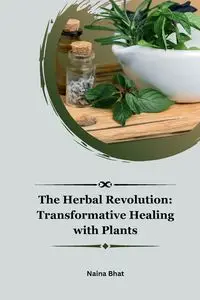The Herbal Revolution - Bhat Naina
- Transformative Healing with Plants
Phytotherapy, or botanical medicine, is another name for herbal treatment, which has been used for thousands of years. Many societies all over the world have a long history of using plants for therapeutic purposes. Throughout human history, the use of plants for healing has been prevalent among both indigenous groups and ancient civilizations. This summary will examine the historical foundations of herbal medicine as well as its development and social importance in many countries.
Historical Civilizations:
Herbal medicine has its roots in ancient civilizations, when knowledge of therapeutic plants was transmitted from generation to generation. Herbal medicines, for instance, were recorded on papyrus scrolls dating back as 1550 BCE in ancient Egypt. One of the earliest extant medical documents, the Ebers Papyrus, includes details on hundreds of medicinal plants that the Egyptians employed to cure a wide range of illnesses. Similar to this, the Mesopotamian Sumerians, Babylonians, and Assyrians had a long history of using plants for medicinal purposes, as evidenced by the clay tablets they left behind.
With origins spanning over 2,500 years, herbal therapy is greatly influenced by ancient China. One of the oldest Chinese pharmacopoeias is the well-known book "Shennong Ben Cao Jing," which is credited to Emperor Shennong. It is the cornerstone of traditional Chinese medicine (TCM), classifying hundreds of herbs according to their therapeutic qualities. Herbal medicines are still incorporated by TCM into its all-encompassing strategy for health and wellbeing
EAN: 9789358686999
Oprawa Skórzana





